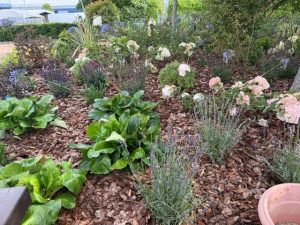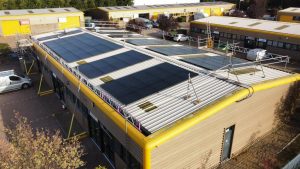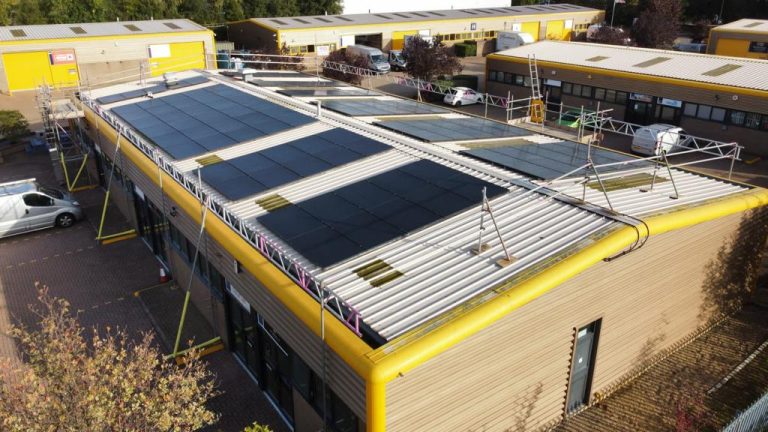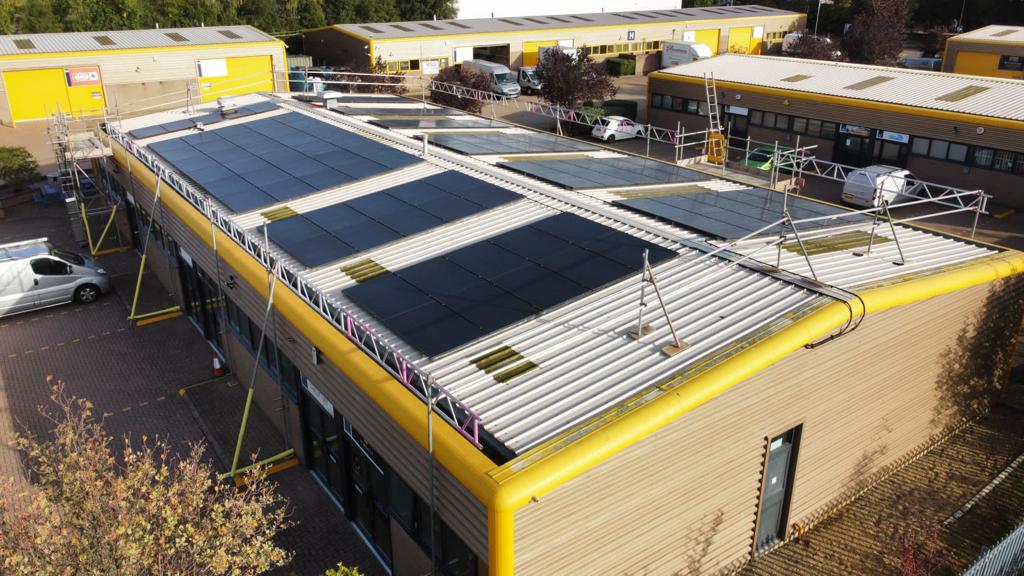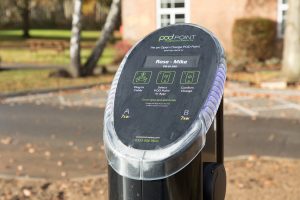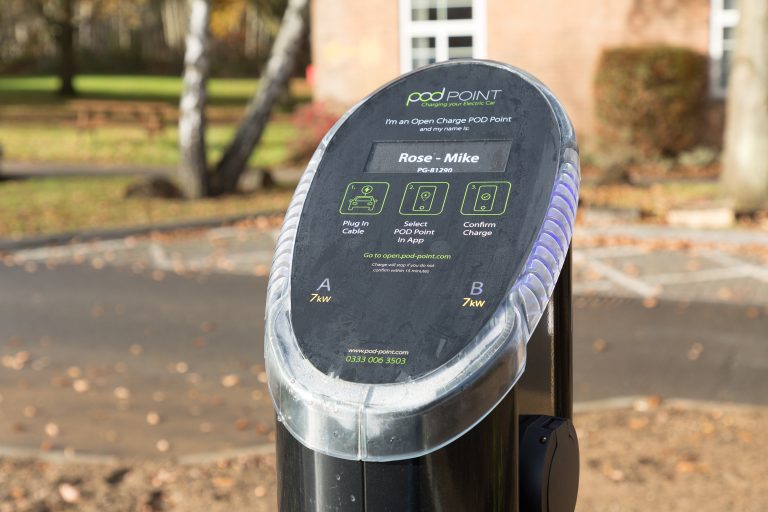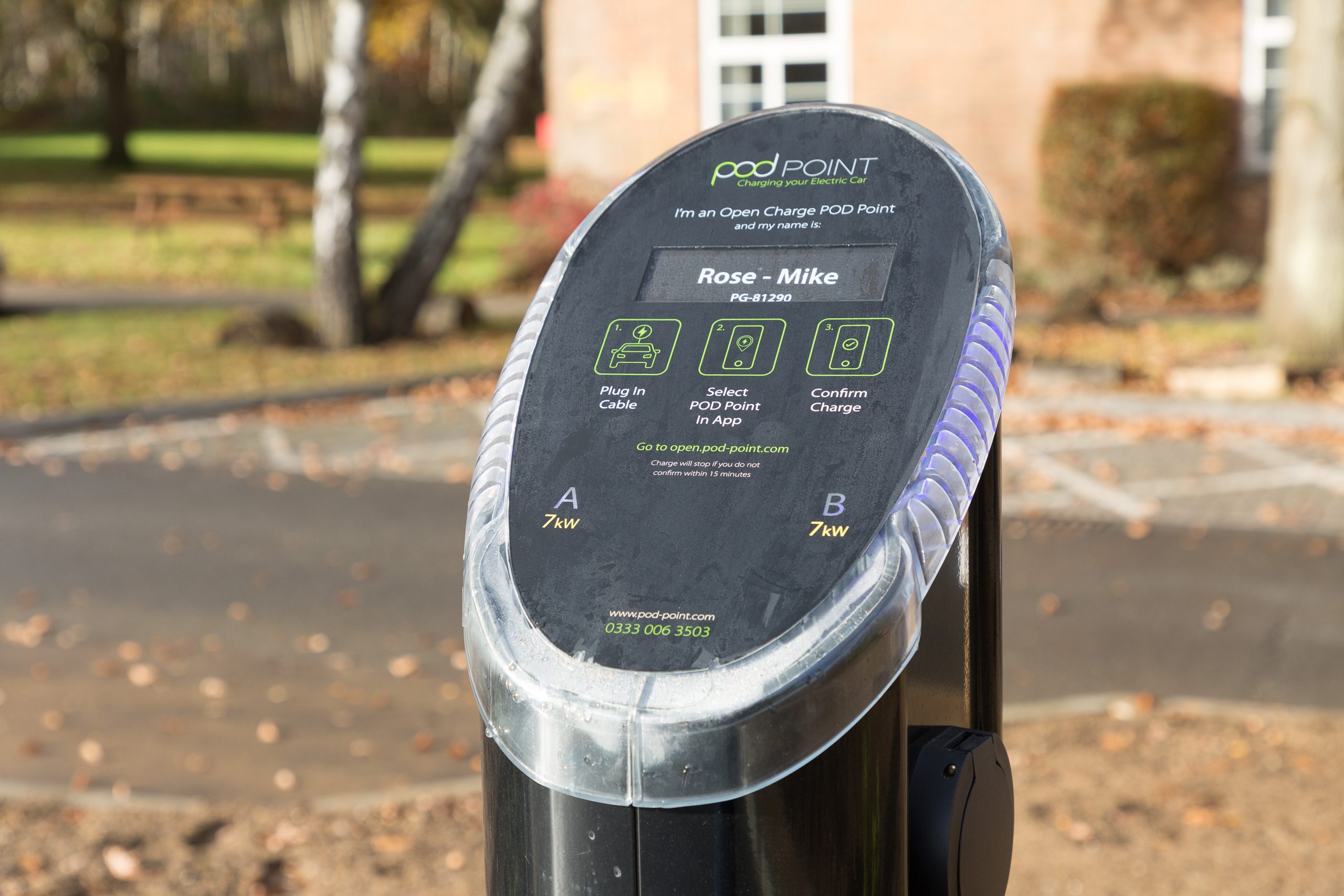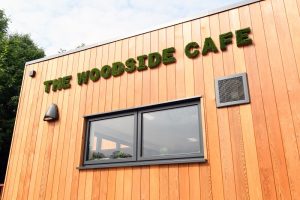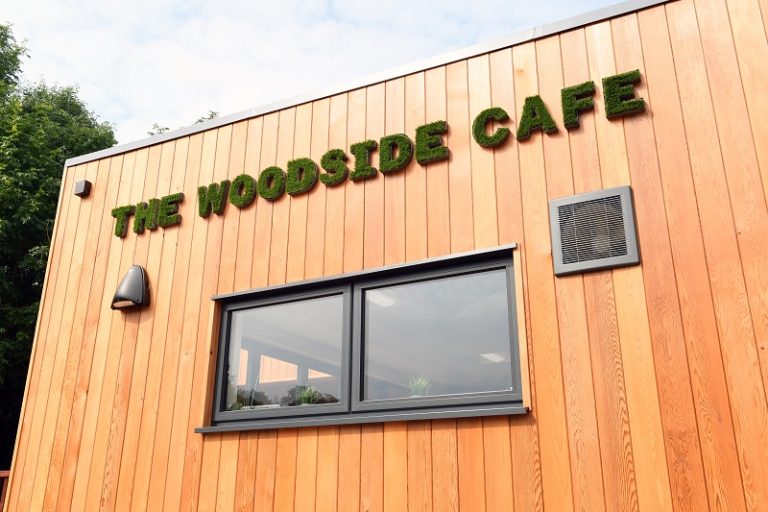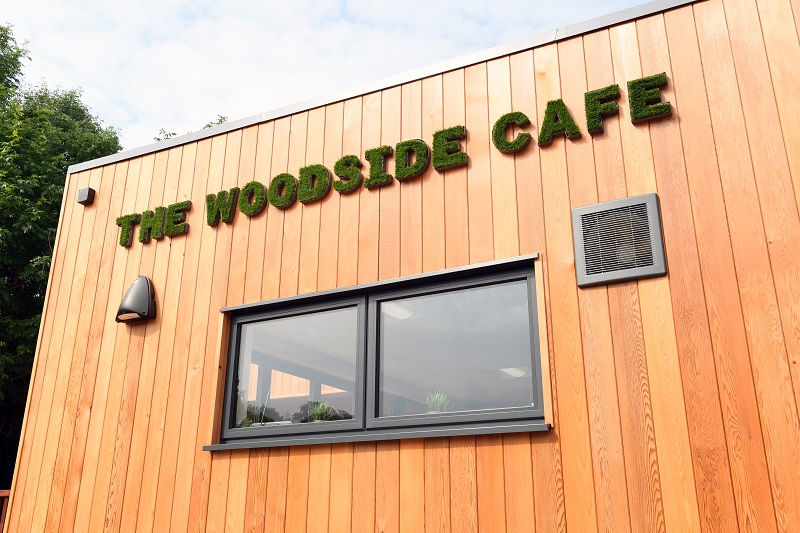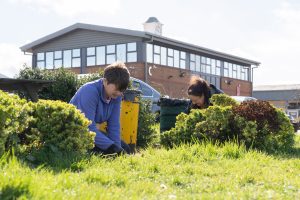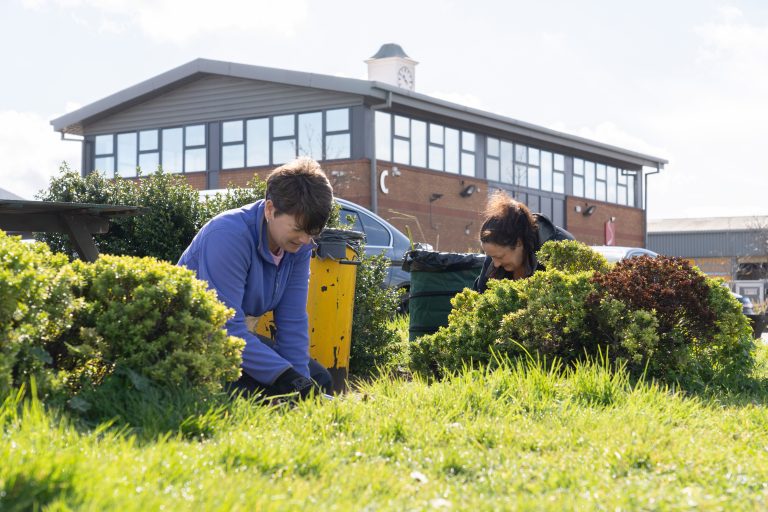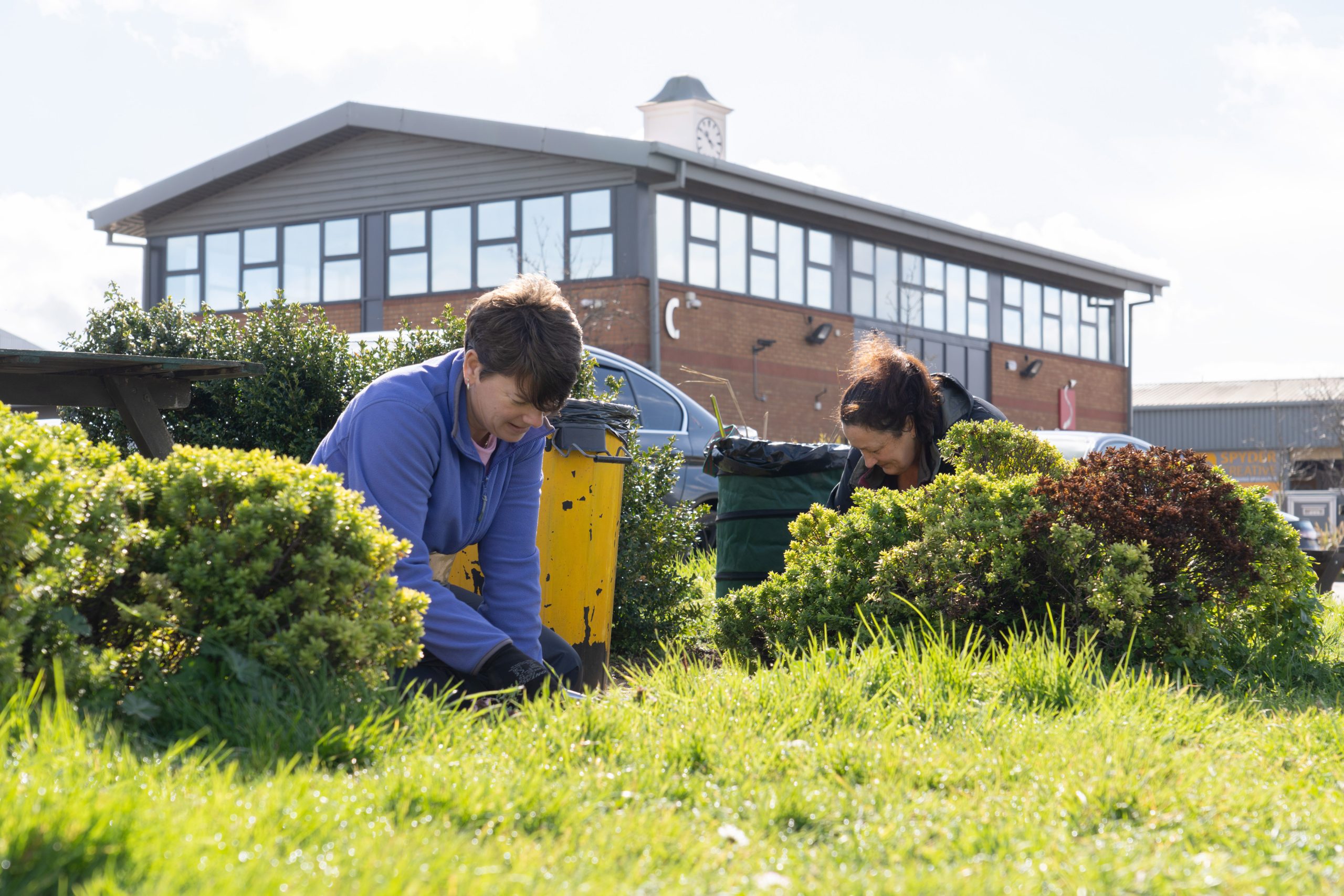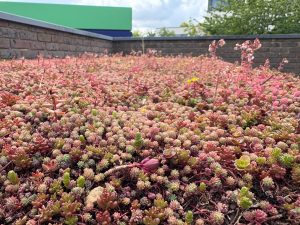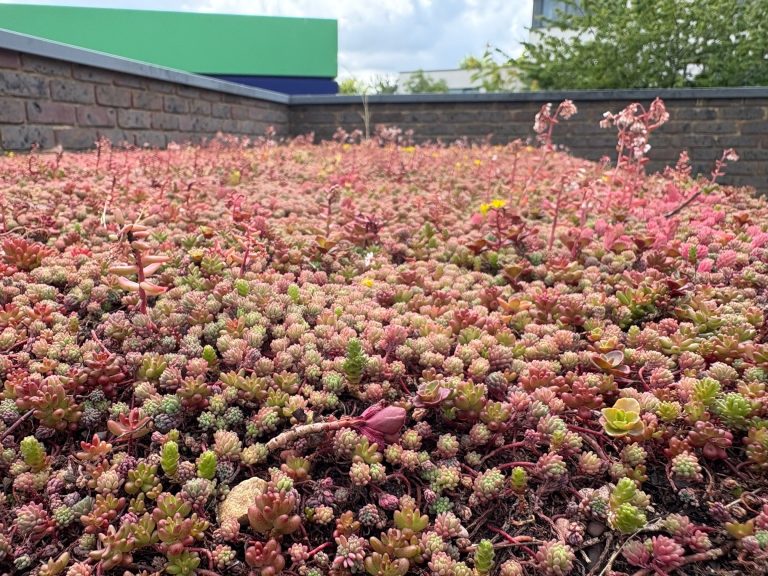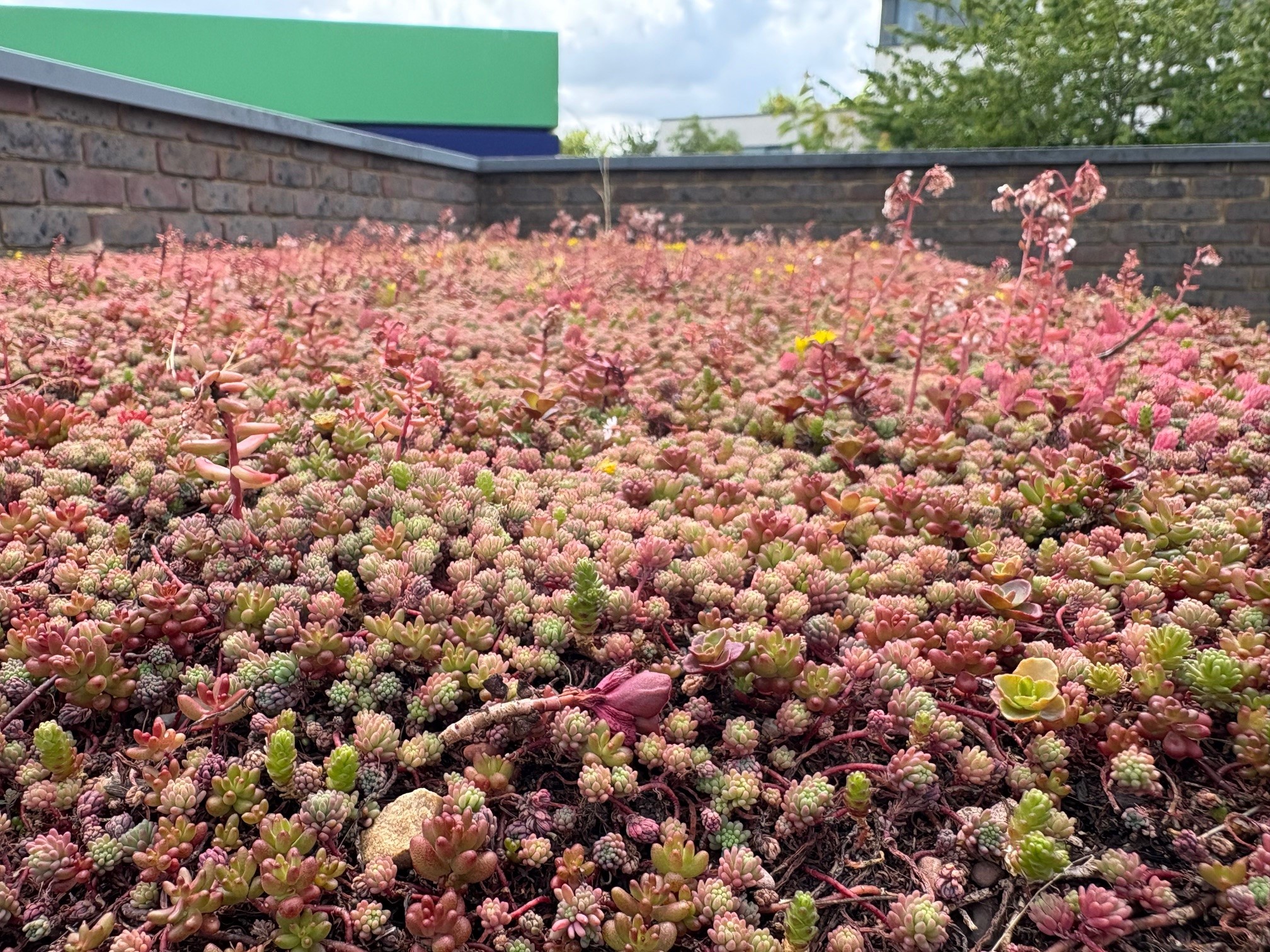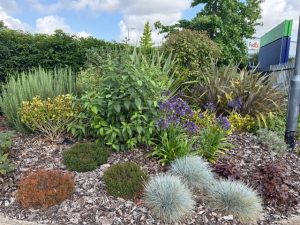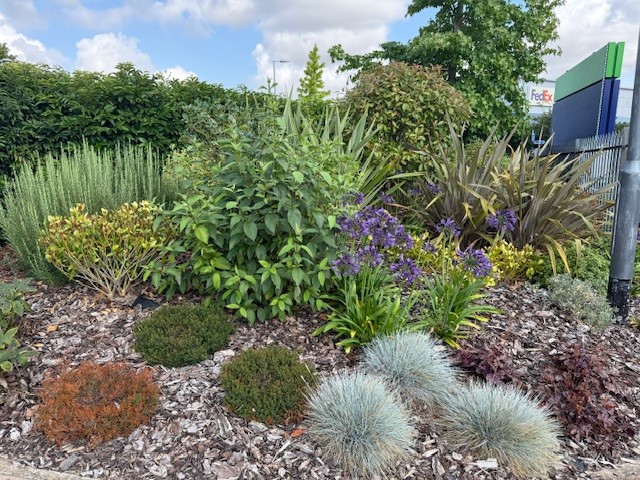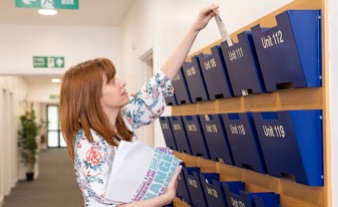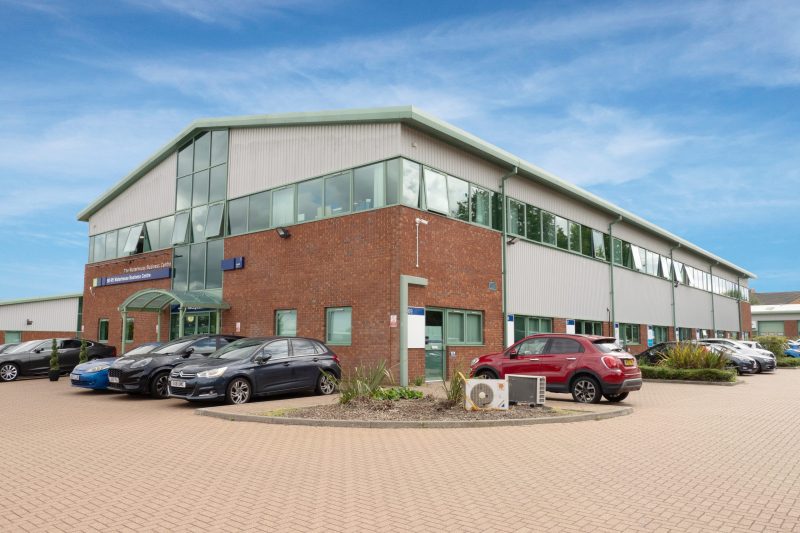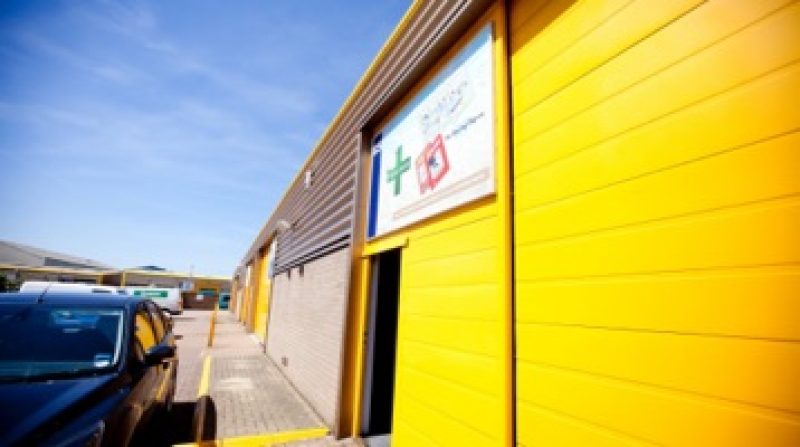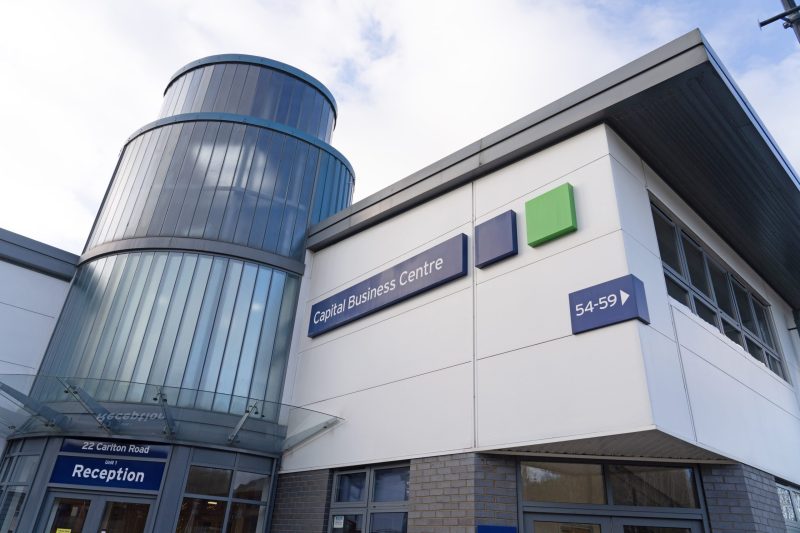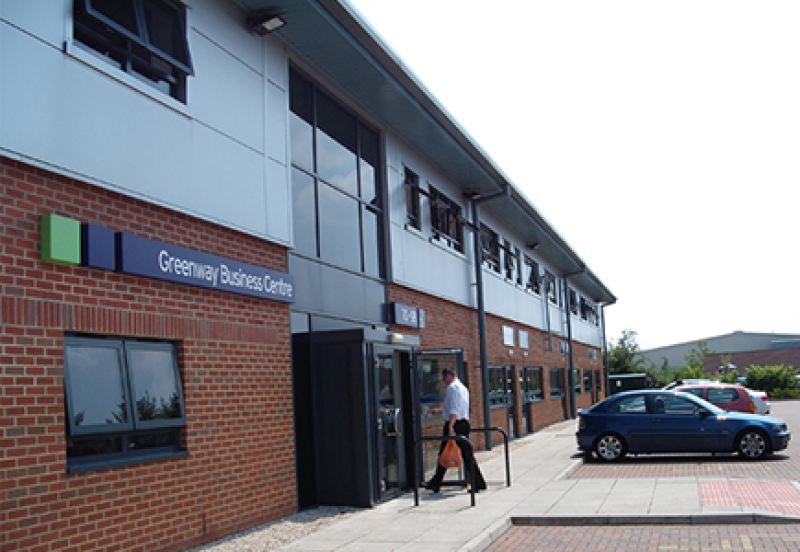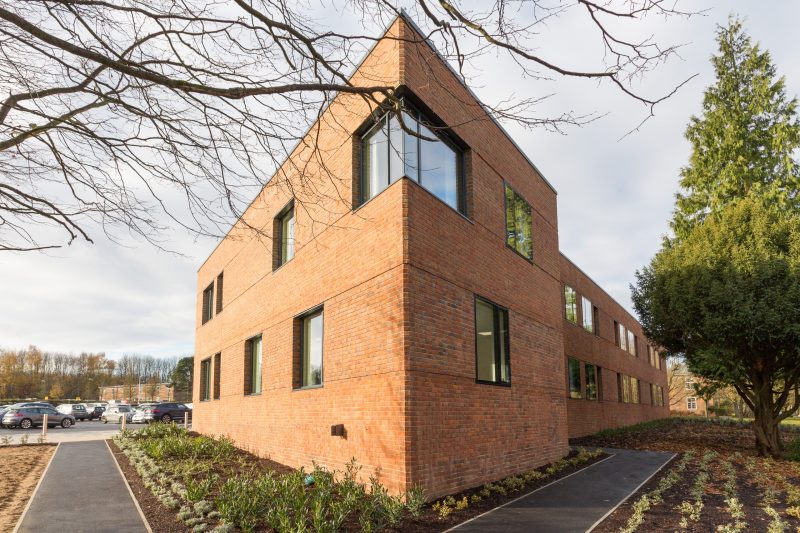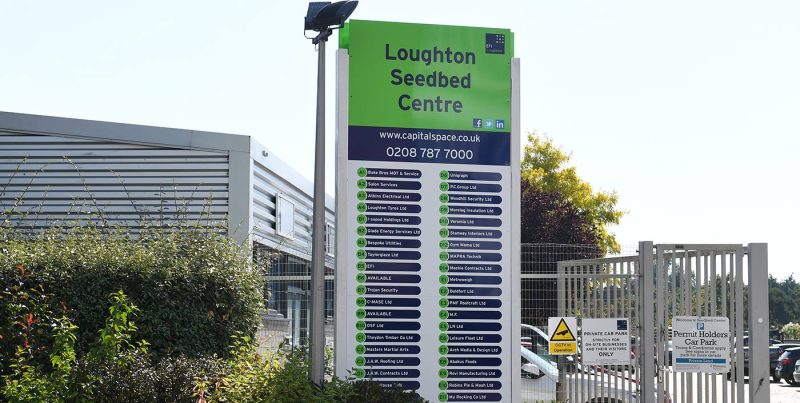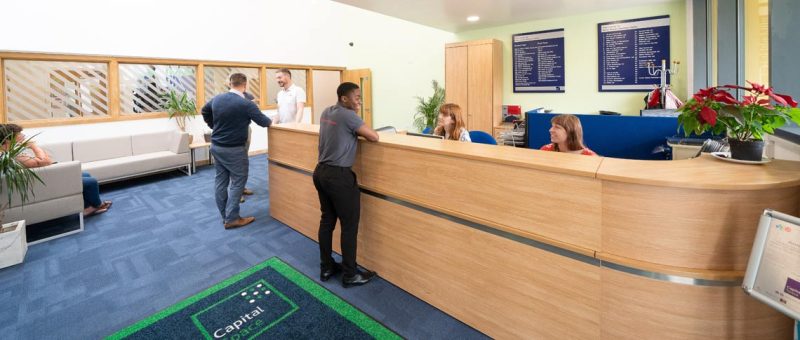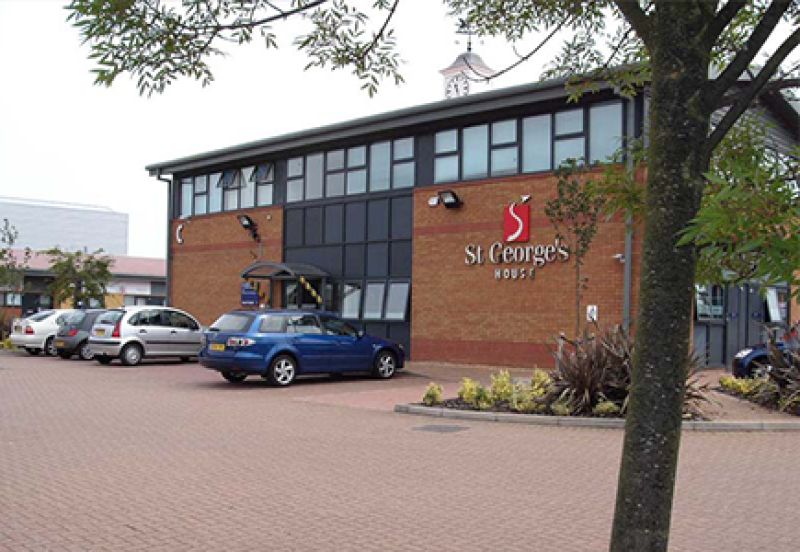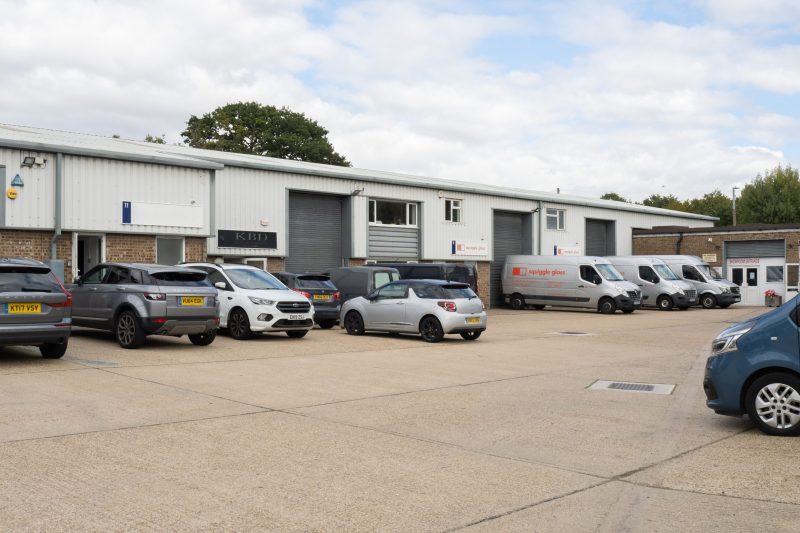Green Policy
Since the day our business opened over 20 years ago, Capital Space has been committed to improving our carbon footprint by reducing, recycling and reusing wherever possible.
We strive to be rigorous, honest and transparent when introducing green-friendly measures. Our goal is to implement schemes which are cost effective to the business, as well beneficial to the planet.
In order to facilitate this, we have a committed team of Eco-Champions at seven of our centres who are tasked with the responsibility of investigating, collaborating and implementing carbon-friendly measures throughout our sites.

Here is a snapshot of some of the projects we have introduced.
Sustainable Development
We consider sustainability at the initial stage when we select a site to develop and take regard of the proximity to good communication links, possible contamination issues and the adaptability of our project to the existing site levels and to the biodiversity that exists.
As we have traditionally both built and operated our business centres, our focus is on the whole-life costs of materials and not simply on the initial costs of construction. Hence materials and finishes are chosen that are long lasting, uncomplicated to maintain and simple to use.
Energy Saving Measures
The following energy saving measures are included in all new-build schemes wherever practical, and within existing buildings, during both large-scale and minor works when it is economical to do so;
- Insulation, which meets or exceeds the latest Building Regulation and BREEAM standards.
- Installation of photovoltaic solar panels at Kings Hill, Chelmsford, Croydon, Harlow, Sittingbourne and Milton Keynes with plans for additional installations at Colchester, Southend and Loughton.
- Battery storage is a means of saving solar power for use at both ends of the day. Our first experimental battery commenced operation in May 2021.
- Solar control window film.
- High efficiency light fittings and control equipment zoned to enable a reduced number of fittings to be on at any one time.
- Passive infrared (PIR) controls within common areas connected to lighting and to extract systems to reduce power consumption.
- Sun pipes which bring natural daylight into internal areas.
- We select refrigerators for common areas, which are always rated A for energy consumption.
- Air source heat pumps; our first pump was installed in 2021, and if successful, this technology will replace electrical panel heaters and in time maybe gas boilers and low pressure hot water systems.
In accordance with Government’s current guidance, our centres are surveyed by an accredited energy assessor to give each premises an energy rating and make any recommendations to improve the efficiency of the building fabric, heating, ventilation, cooling and lighting systems.
Centre teams have responsibility to communicate with occupiers on all energy saving and conservation matters in an effort to reduce consumption and waste.
We constantly monitor our energy usage to enable us to manage and thereby minimise our consumption.
Case study: Solar Panels at Churchill Square Business Centre
Following the successful introduction of photovoltaic solar panels at our Croydon business centre in 2012, we decided to introduce solar panels at Churchill Square two years later. Working closely with SunGift Energy, award-winning designers and installers of bespoke renewable energy systems, we installed 5 x 30kWh solar panels on the roofs of five buildings.
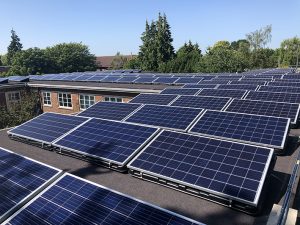
The installation comprised an impressive 600 panels and was fitted with the latest technologies. The benefits were evident within weeks:
* 9,864 kWh of electricity was produced;
* 3,866kg CO2 emissions were saved.
This was the equivalent of planting 13 trees and lighting 29,846 light bulbs for 1 day.
In their first year of generation, 121,062 kWh of electricity was produced – equivalent to the planting of 156 trees.
Thanks to their resounding success, we expanded our solar panels to three additional buildings on the Square in 2018, including our flagship new Building 80 and the Capital Space head office, Building 70. The cost of this investment in 2018 was £72,481.80, bringing the total cost of investment in solar panels on Churchill Square to £391,035.80.
As a result, the solar panels on the site have the capacity to generate 240,000 kWh of electricity each year. We believe we consume around 80% of this output, as there is not a 365-day need for high volumes of electricity.
By using our own generated electricity, we:
- are able to provide the bulk of the electrical energy required during the summer months;
- purchase less from the National Grid, which results in lower energy bills for Capital Space and our customers;
- can now advertise that a large proportion of the energy usage here is generated via our own ‘green’ system, which is a positive marketing message;
- have reduced our carbon footprint by using a truly renewable energy source, helping to contribute to the reduction of greenhouse gas emissions;
- have helped to protect local water resources traditionally used by gas and coal powered energy production.
The lifespan of each array is typically 20 years, which means that we will have solar panels on the site until at least 2038.
Case study: Electric car charging pod points at Churchill Square Business Centre
As part of our ongoing commitment to reducing our carbon footprint, we spent around £3,000 on the introduction of four electric car charging pod points. They are situated on our onsite car park close to Gibson Drive and our new Building 80. They were first available to use from December 2017.
Since then, the charging points have proven to be very popular – in the 12 months between February 2018 and 2019, our pods have been used 350 times, which is almost every day.
The charging points have been welcomed by our customers and are available to use by the wider community.
In twelve months between 2018-2019, the pods:
- generated 1,961 kWh of energy, saving 1,098kg in carbon dioxide emissions;
- contributed to improving local air quality with the reduction of harmful emissions, resulting in improved health for local residents;
- helped to promote the use of alternative, green-friendly cars to commuting customers thanks to their easy accessibility and low cost;
- benefited residents and businesses in the wider community;
- contributed to a reduction in local noise pollution.
Capital Space is investigating the feasibility of installing electric car charging pod points in other centres across the business.
Our Energy Suppliers
Capital Space uses electricity supplied by EON and SSE, and their fuel mixes are detailed on the following page, and gas is supplied by Regent and currently the gas supplied is not 100% from renewable sources.
Our energy suppliers offset their carbon emissions by investing in nuclear power and wind farms. These carbon offset schemes allow companies to invest in environmental projects around the world to balance out their own carbon footprints. The projects are usually based in developing countries and most commonly are designed to reduce future emissions.
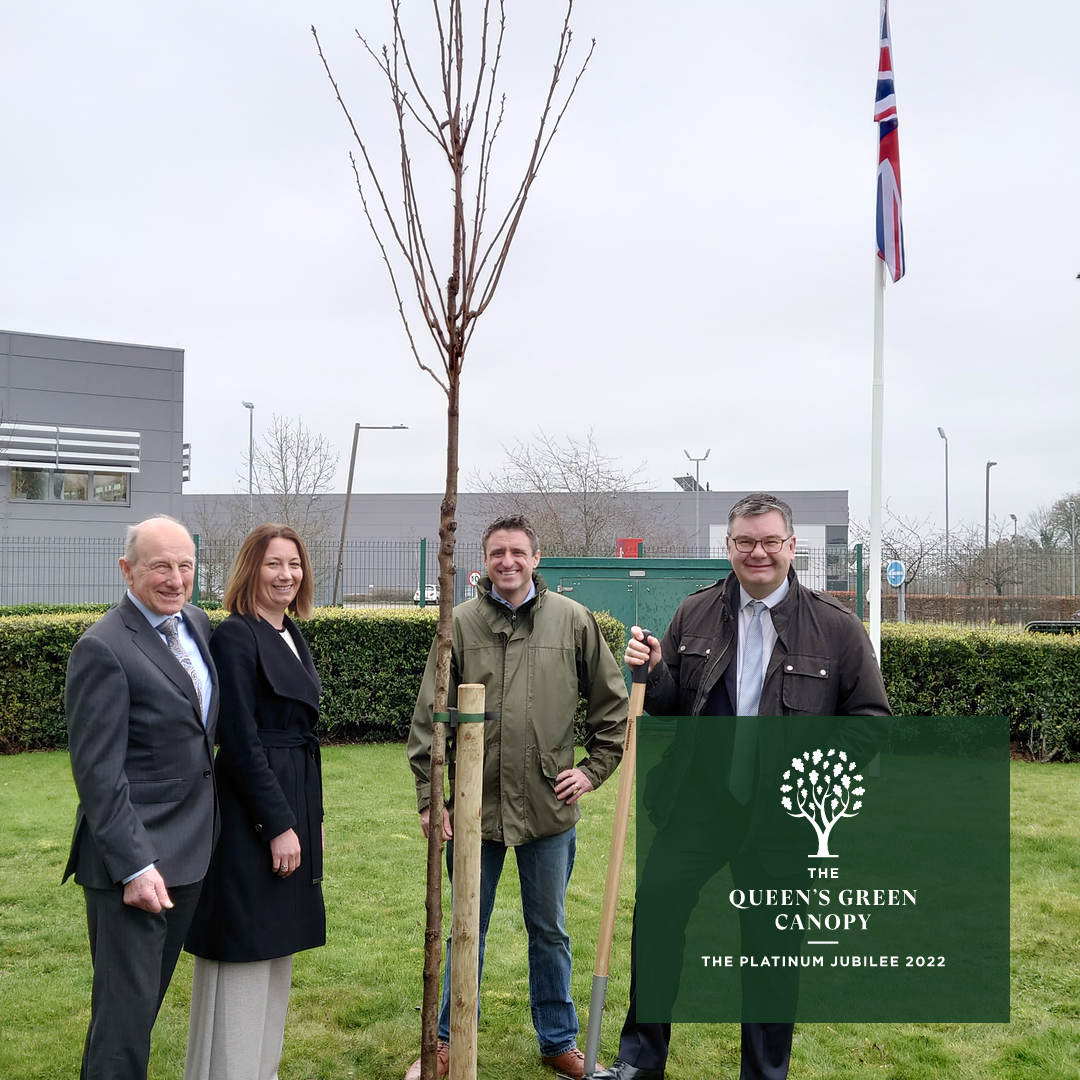
Environmental and Recycling Facilities
At the end of the construction phase, we landscape as many areas as possible in order to create a pleasant working environment. We try to ensure we introduce additional species to the local environment as part of the design. Centre teams will add bird tables, bird-feeding tables and bat boxes wherever appropriate and manage the soft landscaping, through specialist suppliers, including tree management, to support the natural environment.
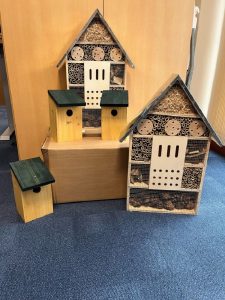
Once a business centre is operational, our Centre Managers arrange recycling facilities for cardboard, paper, tin, plastics, print cartridges, failed lamps and batteries for small equipment. In addition, if an individual customer has a need for particular recycling facilities required by a manufacturing operation, we will always try to make space available.
We organise the recycling of customer’s redundant computer and IT equipment through special recycling days with a third party computer recycling company. Customers can dispose of unwanted IT equipment, which is cleaned, tested and re-assembled into a working system. Our selected computer recycling company operate a 0% to landfill policy and the profit from retail sales of the refurbished equipment goes to UK Charity.
When we select suppliers to our centres, regard is taken of their environmental policy and, where relevant, whether they use eco-friendly products and if they are from sustainable sources.
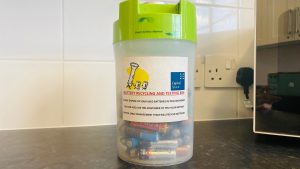
Working from home has accelerated the switch to electronic data in preference to relying on paper records. All supplier invoices are now processed and stored digitally. In 2021 we began documenting our licence contracts with our customers via Docusign. This initiative has practically eliminated the use of paper and physical mail delivery services. It has resulted in:
- 4292lbs reduction in carbon emissions;
- 5385 gallons of water being saved;
- 1828lbs of wood being saved;
- 300 lbs of waste elimination.
Energy savings
Over 2022/2023, we reduced our lighting across all of our business centre car parks at times where we felt it wasn’t needed.
As a result, we have saved 11.5kw per hour across 8 centres. This totals 50,000kwh of electricity in a year, which equates to around 11½ tonnes of C02 saved across the group.
It is equivalent to greenhouse gas emissions being avoided by:
*12.3 tons of waste being recycled rather than put into landfill;
* 1534 bags of waste recycled rather than put into landfill;
* 583 tree seedlings grown for 10 years;
It is also equivalent to C02 emissions from:
- 9 homes’ electricity usage in one year
- 82 barrels of oil consumed
- 1,447 propane cylinders used for home BBQs
- 3 million smartphones being charged.
Green Travel
With increasing pressure on people to consider alternatives to car travel, we always provide cycle storage facilities. In Milton Keynes, we have gone a step further by creating a living roof on our new cycle shelter.
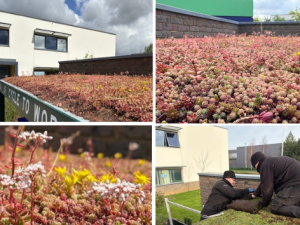
Where possible, we locate our business centres in areas with good public transport services.
In addition, the business centres have shower facilities for customers’ use if they cycle or jog to work or during the lunch break.
Other initiatives
- Trialling the use of emerging battery technology;
- Trialling the use of insulated ceiling tiles;
- Motion sensors in long corridors to switch off lights when communal spaces are not in use
- Water use surveys to curb dripping taps and leaky cisterns and percussion taps to prevent people leaving them on;
- Outdoor seating and picnic tables in most sites to encourage movement from a place of work and to improve wellbeing;
- Bicycle racks to encourage outdoor recreation in summer and alternative modes of transport to/from work;
- Additional tree planting where possible.
